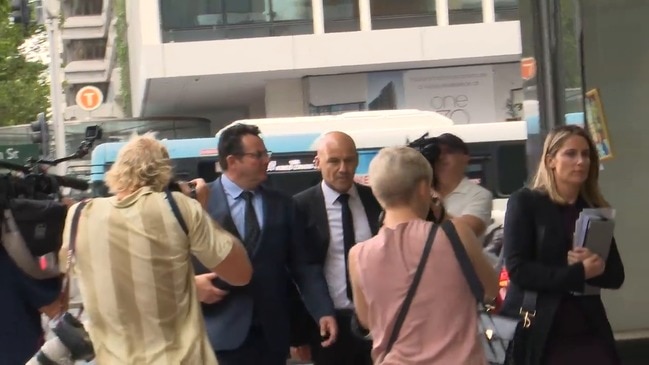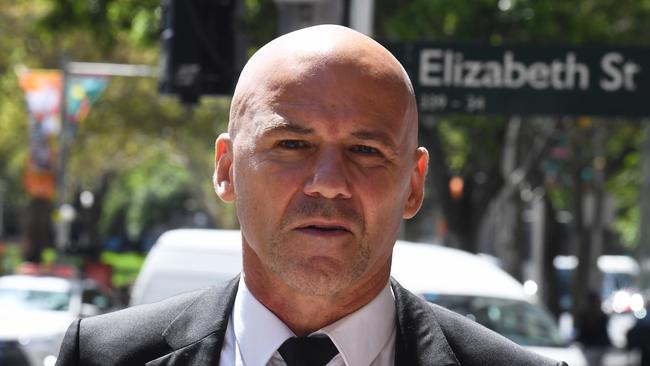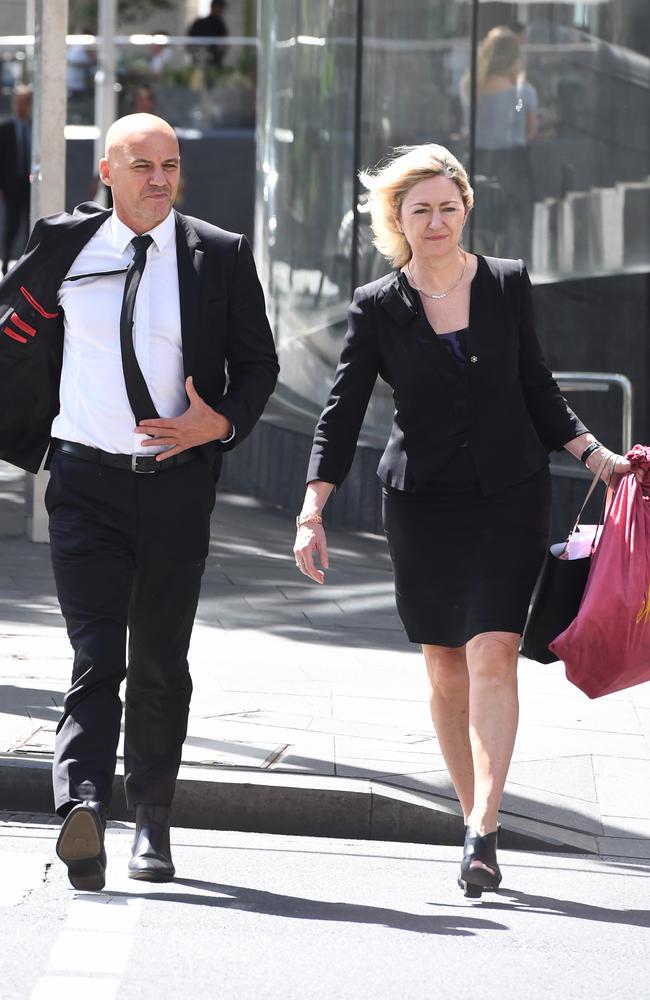Gary Jubelin recorded conversations to ‘protect himself’
Former homicide detective Gary Jubelin used his phone to record conversations with a suspect in the William Tyrrell investigation to protect himself from reprisal complaints and “disgruntled” officers on his own strike force, a court heard on the final day of his two-week hearing.

Police & Courts
Don't miss out on the headlines from Police & Courts. Followed categories will be added to My News.
- Tyrrell cop ‘feared’ reporting Jubelin recordings
- William Tyrrell was accidentally run over: Top cop’s theory
- Tyrrell cop Jubelin wants ‘full facts’ revealed
A former homicide detective used his phone to record conversations with a suspect in the William Tyrrell investigation to protect himself from reprisal complaints and “disgruntled” officers on his own strike force, a court has heard.
Retired detective chief inspector Gary Jubelin will have to wait until April to learn his fate following an explosive two-week hearing into allegations he illegally recorded four conversations.

For 10 days, the Downing Centre Local Court has explored the intricacies of the high profile investigation into William’s disappearance and allegations of under resourcing, discontent in the police ranks and unflattering statements by senior officers.
Jubelin has pleaded not guilty to four breaches of the Surveillance Devices Act.
He claims he was protecting his lawful interest in recording the conversations.
During closing submissions on Friday, crown prosecutor Philip Hogan argued that if that defence succeeded, it could open the door to any police officer using his or her phone to record without a warrant.
“The crown case is that Gary Jubelin violated Paul Savage’s rights in circumstances where he didn’t care whether he was breaking the law or not,” he said.
No officer was above the law, Mr Hogan said, no matter how serious a crime was or how frustrating under resourcing was.
One of the recordings related to a conversation Jubelin, who was on leave and visiting family on the Mid North Coast at the time, recorded at Savage’s home in Kendall in December, 2018.
Savage had called him and asked to speak to him about his car, which had chemicals left on it after being forensically examined.
Mr Hogan suggested there was “no urgency” to see Savage, regardless of it being “convenient”.

The warrants for both telephone intercepts and surveillance devices had expired by then.
“Convenience falls a very long way short of reasonable necessity,” Mr Hogan said.
However, Jubelin felt he had to record the conversations to protect his lawful interests, including against potential complaints from Savage, the court heard.
Savage had complained in the past about being “frozen” with cold airconditioning and not given water during a police interview in 2017.
Defence barrister Margaret Cunneen SC said Jubelin was a senior detective responsible for investigating and solving the suspected murder of a three-year-old boy.
“He has a lawful interest in protecting himself from accusations of Savage,” she said.
Ms Cunneen labelled the case against her client as an extraordinary prosecution of a fine serviceman, not a liar.
The officer was also protecting himself from disgruntled members of his strike force, “who had been engaged in a lengthy and fraught job which had not yet produced for them the reward of a result”.
During the hearing, Jubelin had also been grilled over his interview and conversations with Savage in 2017.
Mr Hogan accused him of demeaning and humiliating an elderly vulnerable man without a “shred of evidence” to support the assertion he was involved in William’s disappearance.
“Mr Jubelin didn’t care the way he dealt with Savage was fair or proper and produced inadmissable evidence,” he said.
However, Savage was not charged, Ms Cunneen pointed out, or put on trial.
“He was a person of interest interviewed in a robust fashion,” she said.
“If that is not to be the way that homicide detectives do things in the future then it can hardly be expected that the homicide clearance rate will be enhanced.”
Magistrate Ross Hudson will hand down his judgment on April 3.
Outside court Jubelin said he had no animosity for the police.
“It’s a tough job and I respect the work officers do,” he said.
“I do have issues with people within the force who put personal ambition above their duties.
“We still don’t know what happened to William Tyrrell and I look at the resources that have been put into prosecuting me.
“I just can’t help but think it would have been better those resources put into finding out what happened to William.”

